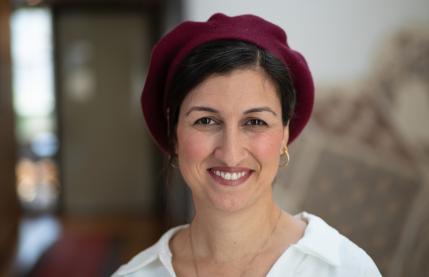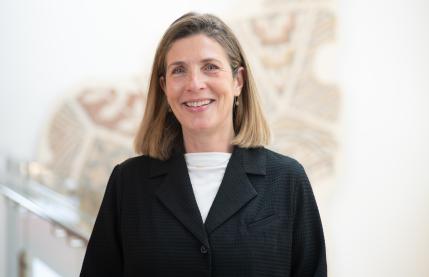Research shows that in the early years, especially from pregnancy to age two, babies develop fundamental abilities and skills (social, emotional, physical and cognitive) that affect them for the rest of their lives. Environment plays a critical role in the quality of their development. An environment that is healthy, secure, encourages positive relationships with parents and caregivers, and offers proper nutrition, stimuli and learning opportunities, enables children to attain their full potential. A child deprived of these will, over time, require more intensive intervention to bridge the gaps that have been created.
There is a strong correlation between a family’s socio-economic status and its ability to provide children with optimal conditions for development. The gaps between stronger populations and underserved and marginalized populations begin in pregnancy and widen as the child grows. Our aim is that every child, in particular those from underprivileged backgrounds, be provided with the best conditions for healthy development.
We have identified two major areas for our support that contribute most significantly to creating a nurturing environment:
Parents and Families
The primary influence in a child’s early life is parents and family. Parents require support systems to help cope with the emotional challenges of parenting, learn how to identify and provide for their children’s needs, and to foster the creation of a secure bond and parenting practices that advance their children’s development.
Our efforts thus far have consisted of fortifying the existing system of Well-Baby Clinics and turning into a national infrastructure and a nexus of support for parents, strengthening voluntary community infrastructures for assisting women postpartum, and promoting the development of parenthood preparation workshops.
Quality of Care Frameworks
Infants are deeply influenced by the quality of the framework in which they spend their time. In Israel only 24% of children 0-3 are in supervised daycare facilities. For the rest, it is estimated that most are in private settings that do not maintain standards for quality of care or train and upskill caregivers.
Despite current government efforts to increase supervision in some of these frameworks, we have concluded that there is a need to improve the quality across the board. We are working to create community and regional models that afford caregivers access to professional development and participation in professional communities that will help improve the quality of care, as well as raising community awareness of the crucial importance of early childhood. Yad Hanadiv’s Early Childhood Programme is also supporting the formulation of voluntary standards for quality of care and fostering their adoption.
Detection and Treatment of Developmental Delays
When concerns arise regarding the pace of a child’s development, early diagnosis and treatment are essential to achieve effective results. We are exploring ways Yad Hanadiv can contribute to improving and strengthening detection and treatment of developmental delays.
The Principles Underlying Our Activity
Our efforts in the field of Early Childhood concentrate on the period from pregnancy to age three and on underprivileged communities. We aspire to a holistic approach addressing a range of factors that impact a child’s environment (above all parenting, care frameworks and early detection and treatment services), as well the cultural context in which the child is raised. Learning and improvement processes are integral to the Foundation’s work.
We also support applied research on Early Childhood in Israel to enrich knowledge in the field and supply data to aid decision makers.
Major Initiatives
Yad Hanadiv's core strategies and major areas of focus
Well-Baby Clinics
Quality of Educare
Quality of care is a critical factor in fostering early childhood development, determined by both structural and process components. Structural elements include framework size, equipment, material resources, staff-to-child ratios, and formal staff qualifications. Process components encompass interactions between caregivers and children, as well as staff and parents, which directly impact children’s experiences and development; these are considered to be the most important parameters, with direct impact on children’s experiences and ultimately on their development.
Most children in Israel from birth until the age of three are cared for in unsupervised private frameworks. The percentage is higher among children from weaker socio-economic backgrounds. Typically, these frameworks are of lower quality, as caregivers are not required to undergo training or professional development. The absence of a national body or office charged with supplying the most basic types of training and oversight perpetuates the low quality of these frameworks and deepens developmental gaps from a very early age. Despite the shortage of players or organisations in the field committed to upskilling these caregivers, there is a noticeable need and strong desire on their part to learn and acquire professional tools to improve the quality and professionalism of their work, and to become part of a professional community.
The Foundation has established ‘Resheet’ (‘Beginnings’ in Hebrew), an organisation that aims to improve the quality of educare in unsupervised frameworks, in collaboration with local authorities and the Shashua Family Foundation.
The Quality of Educare Strategy aims to:
- Significantly improve the quality of educare in unsupervised frameworks, prevent developmental disparities and enable children to develop the necessary skills to thrive.
- Establish standards, practical knowledge and professional development systems for all caregivers.
- Expand local authorities’ responsibility over these frameworks and provide caregivers with training, supervision and support supplied by professional organisations.
- Advance new policies and methods to foster sustainability of the initiative and facilitate its expansion.




